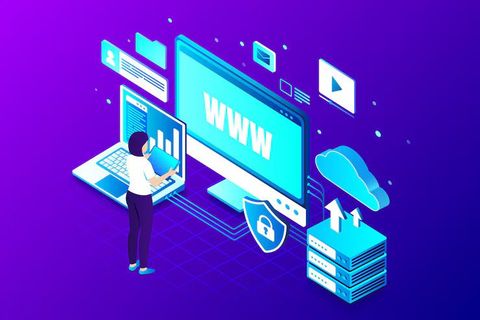
Essential Digital Marketing Strategies for Beginners – A Comprehensive Guide
Digital marketing is the use of online channels and digital technologies to promote brands, connect with audiences, and achieve business goals. It includes a range of strategies such as search engine optimization (SEO), social media marketing, email campaigns, and data-driven advertising.
Over the past decade, the digital landscape has evolved rapidly. Internet access, smartphone usage, and artificial intelligence have reshaped how information spreads and how consumers interact with brands. For beginners, understanding the basics of digital marketing is essential to build a strong foundation and make informed decisions in the digital environment.
Digital marketing exists because the modern consumer spends much of their time online searching, reading, watching, and shopping. Unlike traditional advertising, it enables precise targeting, real-time analytics, and measurable outcomes, making it a core component of any growth strategy.
Why Digital Marketing Matters Today

The relevance of digital marketing has grown significantly due to changing consumer behavior, global connectivity, and data availability. In 2025, businesses and individuals rely on digital visibility to build credibility and engagement.
Here are some reasons why it matters today:
-
Global reach: Digital marketing connects audiences across borders without physical limitations.
-
Measurable performance: Every campaign can be tracked, analyzed, and optimized.
-
Consumer engagement: Social media and personalized content enable two-way communication with audiences.
-
Data-driven decisions: Marketers can use insights from analytics to understand customer preferences and improve campaigns.
Digital marketing impacts everyone—from small content creators and startups to multinational corporations. It solves the problem of limited exposure, offering cost-efficient ways to reach audiences who are actively looking for solutions or information.
A strong digital presence also builds trust and brand recognition, helping organizations compete effectively in saturated markets.
Recent Updates and Trends in 2024–2025
Digital marketing continues to evolve rapidly, shaped by new technologies, privacy rules, and user expectations. The following are key updates and trends from the past year:
1. Rise of AI-Powered Marketing (2024–2025):
Artificial intelligence tools are transforming how marketers create, test, and personalize campaigns. AI-driven analytics, predictive search, and automated content generation became mainstream in early 2025.
2. Voice and Visual Search Expansion:
With smart devices and image recognition growing in use, optimizing for voice and visual search has become essential. Businesses are integrating conversational keywords and image tags to enhance discoverability.
3. Focus on First-Party Data:
Following privacy changes like Google’s phasing out of third-party cookies (2024), marketers now rely on first-party data collection through newsletters, website forms, and app interactions.
4. Short-Form Video Dominance:
Platforms like YouTube Shorts, Instagram Reels, and TikTok continue to dominate engagement metrics. Educational and storytelling-style videos are outperforming traditional ads.
5. Sustainable and Ethical Marketing:
Consumers are increasingly conscious about transparency and sustainability. Brands are adopting ethical messaging and authentic engagement to build long-term loyalty.
| Year | Trend | Impact on Marketers |
|---|---|---|
| 2024 | End of third-party cookies | Emphasis on first-party data |
| 2024 | AI in campaign optimization | Smarter targeting and automation |
| 2025 | Growth in voice search | New SEO keyword strategies |
| 2025 | Expansion of short videos | Higher audience engagement |
| 2025 | Sustainable branding focus | Increased trust and loyalty |
Legal and Policy Considerations
Digital marketing is regulated to ensure transparency, privacy, and user protection. While laws differ by country, most frameworks address similar areas such as data privacy, advertising ethics, and content accuracy.
In 2025, key policies affecting digital marketing include:
-
Data Protection and Privacy Regulations: Most countries have adopted stricter privacy laws. In regions like the EU, the General Data Protection Regulation (GDPR) remains a global benchmark. Similarly, India introduced the Digital Personal Data Protection Act (DPDPA 2023), which influences how marketers collect and store user data.
-
Advertising Standards: Governments enforce guidelines that prohibit misleading claims, hidden endorsements, and manipulative tactics in online advertising.
-
Email and Consent Requirements: Marketers must secure explicit consent for email campaigns and provide clear unsubscribe options.
-
Copyright and Intellectual Property Laws: Content creation must comply with intellectual property rights to avoid copyright violations.
Understanding and following these regulations helps marketers build trust, avoid penalties, and maintain ethical practices.
Helpful Tools and Resources
Beginners can use several tools to simplify digital marketing activities and make data-driven decisions. Below are essential categories and examples:
SEO Tools
-
Google Search Console – To monitor website performance and indexing.
-
Ahrefs or SEMrush – For keyword research, backlink analysis, and competitor tracking.
-
Ubersuggest – To discover trending content and keyword opportunities.
Social Media Management
-
Buffer or Hootsuite – For scheduling and analyzing social media posts.
-
Canva – To create visually appealing graphics for digital campaigns.
Analytics and Reporting
-
Google Analytics 4 – To understand audience behavior and measure performance.
-
Microsoft Clarity – For heatmaps and user session recordings.
Email and Automation
-
Mailchimp – For managing newsletters and automated campaigns.
-
HubSpot – For tracking customer interactions and nurturing leads.
Content and Research
-
Grammarly – To improve content clarity and tone.
-
ChatGPT – For idea generation, outlining, and content structuring.
| Category | Tool Name | Primary Function |
|---|---|---|
| SEO | SEMrush | Keyword and site analysis |
| Analytics | Google Analytics 4 | Audience insights |
| Social Media | Hootsuite | Post scheduling |
| Design | Canva | Graphic design |
| Automation | Mailchimp | Email campaigns |
These tools help streamline digital efforts, reduce errors, and enhance productivity—crucial for anyone starting their digital journey.
Frequently Asked Questions
1. What is the first step for beginners in digital marketing?
The first step is understanding your audience and setting clear goals. Learn the basics of SEO, content marketing, and analytics before exploring advanced techniques.
2. How long does it take to see results in digital marketing?
Results vary depending on strategy and consistency. Typically, it takes three to six months to observe measurable improvements in website traffic and engagement.
3. Is SEO still relevant in 2025?
Yes, SEO remains one of the most important components of digital marketing. However, it now includes voice search optimization, mobile performance, and AI-based ranking factors.
4. What are the most effective digital marketing channels today?
The most impactful channels include search engines, social media platforms, email marketing, and video content. The ideal mix depends on the target audience and objectives.
5. How can beginners stay updated with digital marketing trends?
Follow credible blogs, take certified online courses, and participate in webinars or online communities focused on digital innovation and analytics.
Conclusion
Digital marketing is no longer optional—it’s a vital skill in the connected world of 2025. For beginners, understanding its principles provides the foundation to create meaningful online engagement and measurable success.
By combining strategic planning, ethical practices, and the right digital tools, anyone can build a strong online presence and navigate the evolving landscape with confidence.
Digital marketing is ultimately about communication, creativity, and consistency. The more you experiment and analyze results, the better your understanding of what truly connects with your audience.










